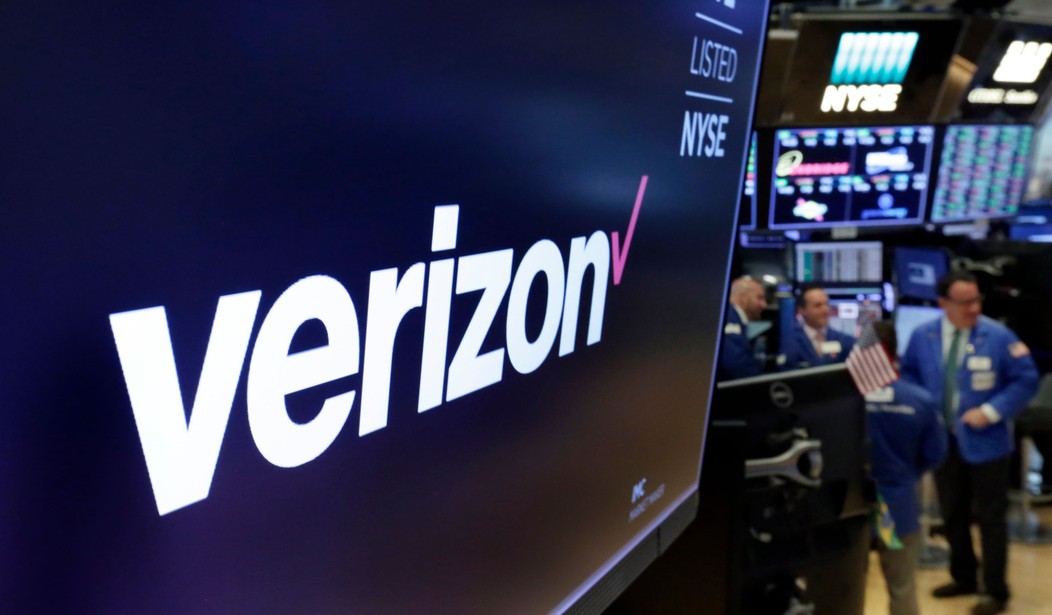Not long ago, when the federal government considered spending on infrastructure, that meant roads, bridges, sewer systems, water pipes and electrical grids. Today, justified or not, information technology infrastructure and broadband are part of the conversation. But as the infrastructure definition has expanded, the solutions have remained stubbornly narrow, mostly limited to throwing more government money around without much thinking. There are better ways.
As argued by those pushing infrastructure spending, broadband access is important - extremely important. This was made very apparent during the pandemic lockdowns. According to OpenVault, broadband consumption increased by 47 percent in the 1st quarter of 2020, as more and more people stayed home to work, needed to connect with school or healthcare resources, not to mention stay in touch with loved ones they could not visit, play games, or watch movies. Consumption continued to increase throughout last year, with 4thquarter consumption at a 40 percent increase over the same quarter of 2019.
Through it all, critics predicted that the system would buckle, that the peaks in use would crash it. They were wrong, not least because for decades the broadband industry, both fixed and wireless, invested in people and infrastructure.
Now the federal government wants to take an increasing role in defining the contours of how technology might advance, when it can advance or even if it can advance. But there are a variety of ways that government can help get broadband access to the roughly 4 percent of the population without it, other than by orchestrating government intervention into industry.
For the government to play a constructive role in this process, it should take a hard look at one technical corner of our legal system regarding patent litigation. Innovation in information technology infrastructure and devices is of course supported by the existence of intellectual property rights—the legally protected creativity and insight of innovators. Those inventors and creators own the rights to specific patents and to how they are used by others, often through licensing. The U.S. patent system is designed to protect and spur this constitutionally protected innovation.
Recommended
But patents can be abused in an attempt to maximize profits. While unsurprising that an individual or company would seek to maximize the value of their property, we should be alarmed when such behaviors become exploitive and even more alarmed when the tendency becomes commonplace. Such abuse jeopardizes innovation and creates barriers to progress, including in broadband and 5G, the next generation of wireless. This behavior also heaps unnecessary financial burdens onto consumers.
Ericsson offers a cautionary example. According to Statista, today Ericsson has a nearly 35 percent market share in 5G related equipment in the United States, making them a dominant player when it comes to 5G. That position, combined with the number of patents Ericsson has accumulated over the years, has led to some questionable company decisions, including Ericsson acting very much like a patent troll in its litigation tactics.
A patent troll is basically an entity whose business plan is to make money from its patents just by suing others, aggressively threatening legal action and pursuing patent infringement complaints in court and agencies in an attempt to coerce payouts and settlements for profit. Complicated information technology products and equipment are perfect targets, given their complexity and the thousands of patents involved. As has been reported, Ericsson regularly undertakes patent litigation action timed around renegotiating licensing rights as agreements expire. Ericsson’s playbook seems to be that of a classic troll - attack, threaten and harass as a means of gaining excess profits from a licensee. Governments around the globe have had to act to investigate and often punish Ericsson for its licensing antics, among other concerning findings of unlawful practices.
Recently, Ericsson launched these aggressive litigation campaigns against 5G related technology but, in addition to asking for damages in court, Ericsson brought its complaints to the specialized US trade agency, the International Trade Commission, seeking outright bans of important 5G equipment and devices supplied by competitor Samsung. This raises even more serious concerns. Considering the current stage of 5G development, the timing almost could not be worse. 5G build out is underway, and new competitors like Samsung are emerging who would drive down deployment costs, allowing for faster and more expansive deployment. But this pro-consumer, pro-market development may be exactly what Ericsson fears, desiring to keep a lion’s share of the market, even as its closed product systems are not the most innovative choice. This is very troubling, since Ericsson’s attacks seem destined to increase the cost of broadband deployment, slow the advance of new technologies and decrease the rate of broadband expansion.
At times, Ericsson has even targeted products it does not produce in its all-out efforts to suppress emerging competition. Such gratuitous litigation distorts the economy and harms consumers. Ericsson’s attacks on both 5G infrastructure equipment and 5G mobile devices harm both those hoping for broadband to be made available in their area and the millions of consumers who will need good quality, secure 5G mobile phones to be able to connect to the 5G network.
Why is a trade agency entertaining Ericsson’s anti-competitive litigation tactics? We need more competition, not less, in next generation communications. The repeated abusive actions taken by Ericsson are troubling on that basis alone; such tactics need to end. The future of U.S. innovation and our global competitiveness are at stake if our 5G efforts falter. Maybe worse, U.S. consumers are denied the benefits of broadband when it is not made available, or they cannot connect to networks, because of scorched-earth lawsuits filed thousands of miles away.
If the government wants to do right in this new era of broadband development, it should look to righting the wrongs in the realm of misplaced intellectual property litigation at a U.S. trade agency that hinder build out to the rest of the nation.
Bartlett D. Cleland serves as the executive director of Innovation Economy Alliance.
























Join the conversation as a VIP Member